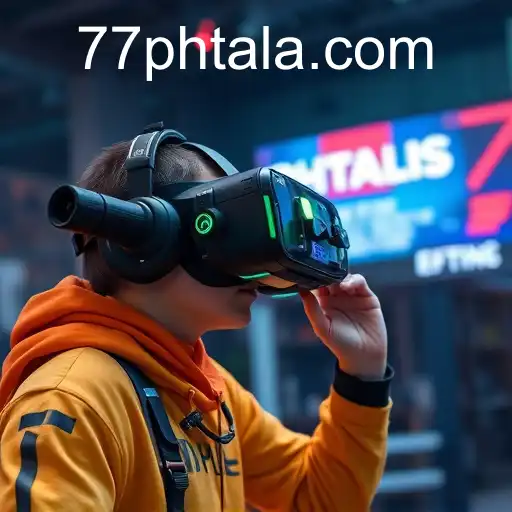
Exploring the Impact of Educational Games in Modern Learning Environments

In recent years, the landscape of education has experienced an unprecedented transformation. At the forefront of this change are educational games, a tool increasingly recognized for its potential to enhance learning. As educators and developers seek innovative approaches to engage students, the allure of educational games stands prominent. The concept behind these games is relatively simple yet profoundly effective: integrate the fun and interactive elements of gaming with educational content to facilitate learning. This trend is particularly evident in digital platforms and apps that have made 'Educational Games' a dedicated category to explore. One such notable keyword that is gaining traction in this domain is 'phtala.' This term may not be widely recognized yet, but it represents a convergence of pedagogical principles and game design strategies aimed at creating immersive and impactful learning experiences. When speaking of 'Educational Games,' we refer to a wide array of interactive experiences designed to teach specific skills or information. These games cover various subjects, including mathematics, science, language arts, and social studies, providing educators with versatile tools that cater to different learning styles. Games with the 'phtala' keyword are crafted to encapsulate a holistic learning approach, emphasizing critical thinking, problem-solving, and cognitive development. One significant advantage of educational games is their ability to motivate students. The interactive nature of games fosters an engaging environment where students are more inclined to participate actively. This engagement is a direct result of the intrinsic motivation that games elicit—an element often facilitated by rewards, challenges, and the fulfillment derived from game mechanics. The 'phtala' games, in particular, are designed to harness these motivational techniques by crafting experiences that are not only educational but also intrinsically rewarding. Additionally, educational games offer the advantage of providing immediate feedback which traditional methods may lack. This instant feedback loop is crucial for students to recognize and correct mistakes in real-time, promoting a more effective learning path. In doing so, students can progress at their own pace, accommodating different learning speeds and needs. As technology continues to evolve, the capabilities of educational games will likely expand further. The incorporation of advanced technologies such as virtual reality (VR) and artificial intelligence (AI) is set to usher in a new era of immersive and personalized learning experiences. Such advancements could see keywords like 'phtala' growing in application and relevance, opening new horizons for learners across the globe. In conclusion, the role of educational games, underscored by the 'phtala' keyword, is becoming more significant as it combines the world of education with the dynamic nature of gaming. As developers and educators continue to innovate in this space, the potential to enhance traditional educational frameworks remains vast and promising. The ever-evolving nature of educational games points toward a future where learning is not only effective but also incredibly engaging and enjoyable.
Exploring the Rise of Phtala: Gaming's New Sensation

Phtala has emerged as a key player in the online gaming space by leveraging unique game mechanics and a thriving community.
2026-01-12
The Rise of Phtala in the Gaming World

Exploring the impact of 'phtala' in the gaming community and its significance in shaping interactive digital landscapes.
2026-01-11
Phtala's Impact on English Gaming in 2026

The role of Phtala in shaping the English gaming landscape this year.
2026-01-10
Phtala: The Evolution of Online Gaming

Exploring the rise of Phtala in the online gaming landscape and the dynamic shifts in player engagement and community building in 2026.
2026-01-09






